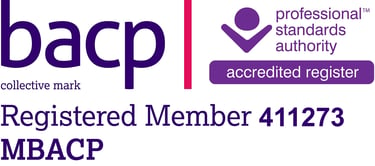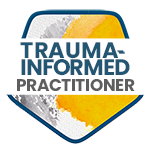Neurodivergence and Hidden Trauma
Skyla Counselling
4/10/20252 min read


Being neurodivergent in a world designed for neurotypical minds can be exhausting. If you are autistic, have ADHD, dyslexia, or other neurodivergent traits, you might have spent a lifetime adapting—masking your true self, working harder to be "acceptable," or trying to make sense of expectations that feel unnatural.
You may have been told you’re "too sensitive," "too much," or "not trying hard enough." Perhaps you've been dismissed, excluded, or forced to fit into spaces that don’t accommodate your needs. The stress of constantly navigating a world that doesn't quite make sense can lead to anxiety, burnout, and a deep sense of loneliness.
The Hidden Trauma of Being Misunderstood
For many neurodivergent individuals, trauma isn’t always about a single distressing event. It can be a lifetime of small, repeated moments—being overlooked, ignored, or struggling to be understood. It can come from:
🔹 The exhaustion of masking your true self just to feel accepted
🔹 Struggling to communicate in ways others expect and feeling unheard
🔹 Sensory overload that others dismiss as "overreacting"
🔹 Being told your way of thinking or feeling is "wrong"
🔹 Experiences of bullying, exclusion, or rejection
🔹 The frustration of not receiving the right support at work, in education, or even at home
These experiences shape not just how you see the world, but how you see yourself. Many neurodivergent people internalise these struggles, leading to self-doubt, anxiety, or feeling as though they are fundamentally flawed.
You Are Not Broken
If any of this resonates, I want you to know: there is nothing wrong with you. The challenges you face are not a personal failing—they are the result of a world that isn’t built with neurodivergence in mind. Your brain works differently, and that difference is not only valid but valuable.
Understanding how these experiences have affected you is an important step toward healing. Therapy can offer a space where you don’t have to mask, explain, or justify yourself—a space where you can be truly seen and heard.
How Counselling Can Help
As a trauma-informed counsellor, I understand how deeply these experiences can impact your self-esteem, relationships, and mental health. In our work together, we can:
✔️ Explore your experiences in a way that feels safe and validating
✔️ Identify and unlearn negative beliefs formed from past struggles
✔️ Develop coping strategies that actually work for you—not just what the world expects
✔️ Support you in embracing who you are without shame or self-doubt
You Deserve to Be Supported
If you’ve been carrying the weight of past experiences, you don’t have to do it alone. Whether you’re just beginning to explore your neurodivergence or you’ve known for years, therapy can help you navigate the challenges while also recognising and embracing your strengths.
📩 If you’re ready to take the next step, I’m here to listen. Get in touch when you’re ready.









